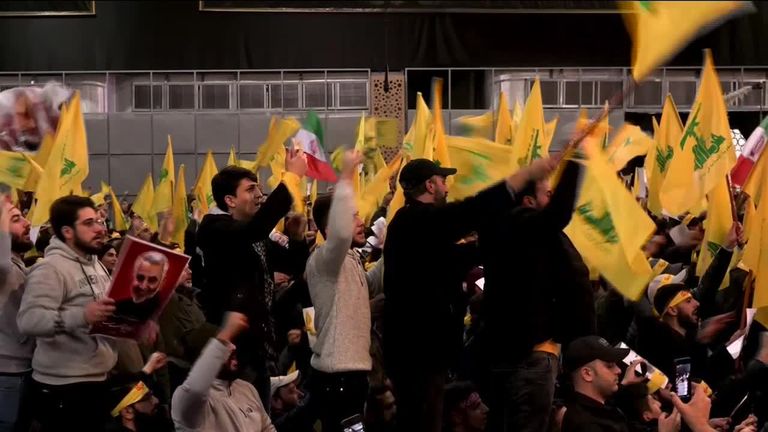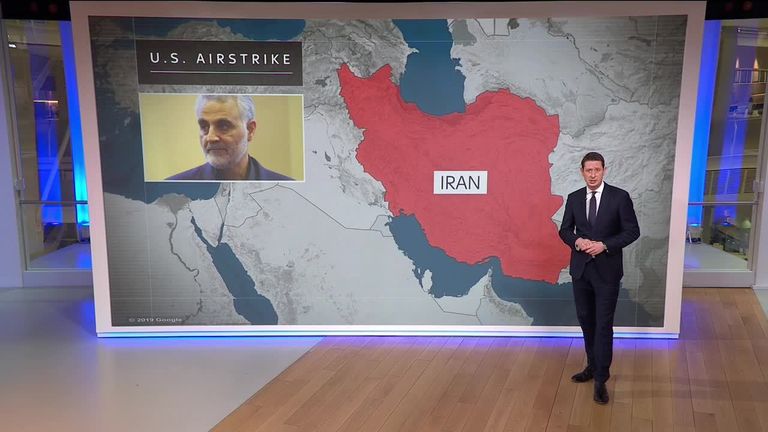Boris Johnson has three goals to tackle Iran crisis - and none look possible
Boris Johnson wants to make sure British troops are not expelled from Iraq and that Iran does not abandon the 2015 nuclear deal.
Monday 13 January 2020 10:08, UK
Boris Johnson's first big diplomatic crisis is already requiring a full spectrum response from across government on its first proper day back after the Christmas break.
He set three goals at the outset, none of which presently look possible to achieve.
Firstly, the prime minister has made clear he does not want Iran to abandon the 2015 accord, which puts restraints on the country's nuclear programme.
Secondly, he has told the Iraqi government not to expel foreign troops - including Britons - from Iraq where they have been fighting Daesh.
And thirdly, he has been urging restraint on all sides - a message particularly aimed at Donald Trump, the US president.
The prime minister's spokesman has gone further, pointedly referring to the 1954 Hague Convention for the Protection of Cultural Property in the Event of Armed Conflict, which criminalised the destruction of heritage sites, as President Trump appeared to threaten overnight.
Can he realistically achieve any of these, given Iran and Iraq have explicitly rejected calls to maintain the status quo?
:: Listen to All Out Politics on , , ,
In the first instance probably not, but the prime minister's opening choices have nevertheless been important.
For Mr Johnson will have other goals beyond those publicly set out in the last 24 hours.
Mr Johnson is being judged by three criteria.
First and most importantly of all he must maintain security against a nebulous threat by Iran and its proxies, and could involve UK collateral damage in the pursuit of punishment of Iran.
The prime minister and his team must work out if any overseas assets are vulnerable and move quickly to protect them - covering every eventuality is impossible but if there is an attack he will be challenged over whether he acted reasonably in this period.
Mr Johnson will want to feel in control of the government machine in case of the unexpected.
Secondly, he is being judged in his skill as a diplomat.
Mr Johnson was a controversial foreign secretary who built bridges with the US but had a mixed record elsewhere.
The effort he puts in personally, and the tone he adopts, could define Britain at a critical juncture 25 days from Brexit day.
Some have criticised his absence in the immediate aftermath of the assassination, but he has set up a key meetings with cabinet ministers, including a National Security Council. He has also spoken to the Iraqi prime minister.
Thirdly, there will be a lot of scrutiny over the way the prime minister balances the often competing impulses of European neighbours with the bellicose US President.
So far Mr Johnson has endorsed Mr Trump's decision to kill Iranian General Qassem Soleimani, but chosen to issue a joint statement with France and Germany urging restraint.
Some EU allies might be relieved Mr Johnson did not side more strongly with the US president, at a time where Britain could have chosen to abandon its more traditional pragmatic stance on Iran favoured by Europe.
Pressure will grow tomorrow when ministers face the House of Commons to explain their handling to date of the conflict.
However, this will be nothing compared with the situation if this conflagration blows out of control.







